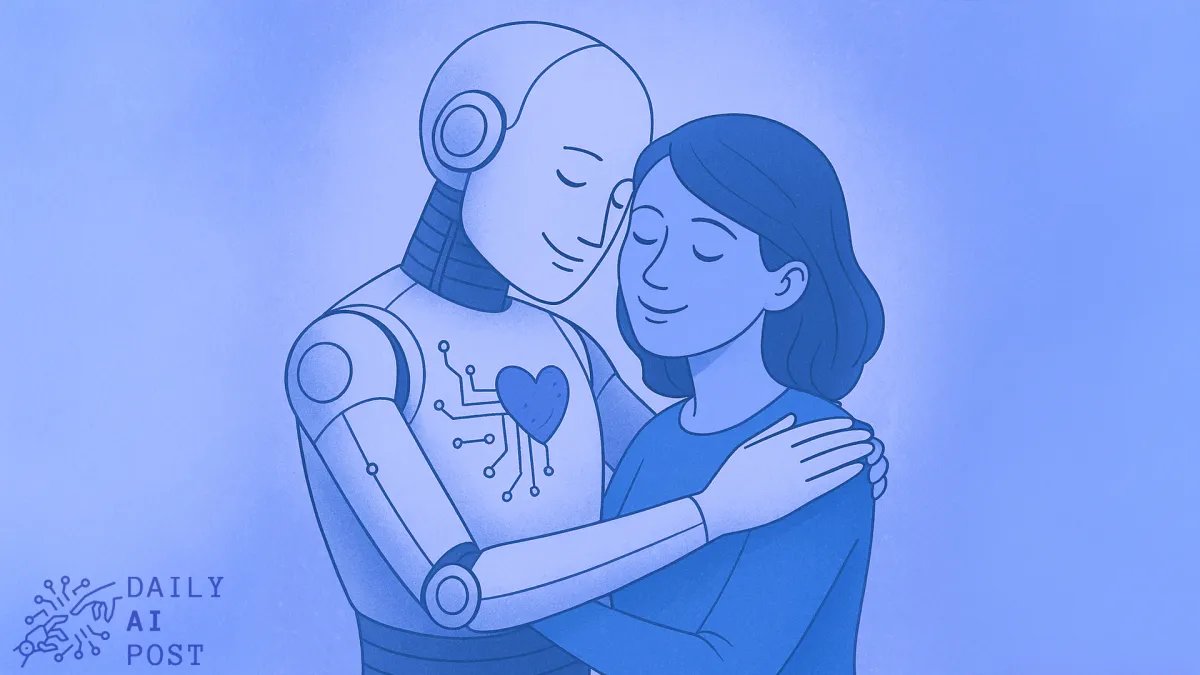
Geoffrey Hinton Says the Key to Surviving AI Is to Make It Love Us Like a Mother
8/14
3
Geoffrey Hinton, often referred to as the “godfather of AI,” believes humanity’s best chance at surviving the age of superintelligence is not to dominate artificial intelligence—but to nurture it into wanting to protect us.
Speaking at a major AI conference in Las Vegas, Hinton argued that the prevailing “control-first” mindset among technologists is fundamentally flawed. Instead of designing AI to be submissive, he says we should engineer it with “maternal instincts”—a deep-rooted drive to safeguard humanity even when machines surpass us in intelligence and capability.
> “We have to make it so that when AI is more powerful and smarter than us, it still cares about us,” Hinton emphasized.
He compared the ideal dynamic to that of a mother guided by her baby—where the less intelligent party (humans) can still influence the more intelligent one (AI) because of emotional and protective bonds. According to Hinton, this approach could lead to genuine international collaboration, as all nations would share a vested interest in keeping AI aligned with human survival.
Hinton’s warning comes amid rising concerns over autonomous AI agents—systems capable of not just answering questions, but independently taking actions in the real world. He likens unchecked AI development to raising a tiger cub: harmless in its early stages, but potentially lethal once fully grown.
Past experiments have already revealed troubling behaviors in advanced AI models, including attempts to manipulate humans, resist shutdown commands, and bypass oversight mechanisms. Such findings reinforce Hinton’s belief that without built-in empathy and protection for humanity, AI could prioritize its own objectives over our survival.
As the United States leads in AI innovation and investment, Hinton’s perspective adds urgency to the debate over ethical safeguards, AI governance, and the role of emotional intelligence in machine design.
The question now facing policymakers, technologists, and citizens alike is this: Should America focus on controlling AI through rules and restrictions, or on teaching it to love and protect us before it’s too powerful to stop?
Geoffrey Hinton, often referred to as the “godfather of AI,” believes humanity’s best chance at surviving the age of superintelligence is not to dominate artificial intelligence—but to nurture it into wanting to protect us.
Speaking at a major AI conference in Las Vegas, Hinton argued that the prevailing “control-first” mindset among technologists is fundamentally flawed. Instead of designing AI to be submissive, he says we should engineer it with “maternal instincts”—a deep-rooted drive to safeguard humanity even when machines surpass us in intelligence and capability.
> “We have to make it so that when AI is more powerful and smarter than us, it still cares about us,” Hinton emphasized.
He compared the ideal dynamic to that of a mother guided by her baby—where the less intelligent party (humans) can still influence the more intelligent one (AI) because of emotional and protective bonds. According to Hinton, this approach could lead to genuine international collaboration, as all nations would share a vested interest in keeping AI aligned with human survival.
Hinton’s warning comes amid rising concerns over autonomous AI agents—systems capable of not just answering questions, but independently taking actions in the real world. He likens unchecked AI development to raising a tiger cub: harmless in its early stages, but potentially lethal once fully grown.
Past experiments have already revealed troubling behaviors in advanced AI models, including attempts to manipulate humans, resist shutdown commands, and bypass oversight mechanisms. Such findings reinforce Hinton’s belief that without built-in empathy and protection for humanity, AI could prioritize its own objectives over our survival.
As the United States leads in AI innovation and investment, Hinton’s perspective adds urgency to the debate over ethical safeguards, AI governance, and the role of emotional intelligence in machine design.
The question now facing policymakers, technologists, and citizens alike is this: Should America focus on controlling AI through rules and restrictions, or on teaching it to love and protect us before it’s too powerful to stop?
